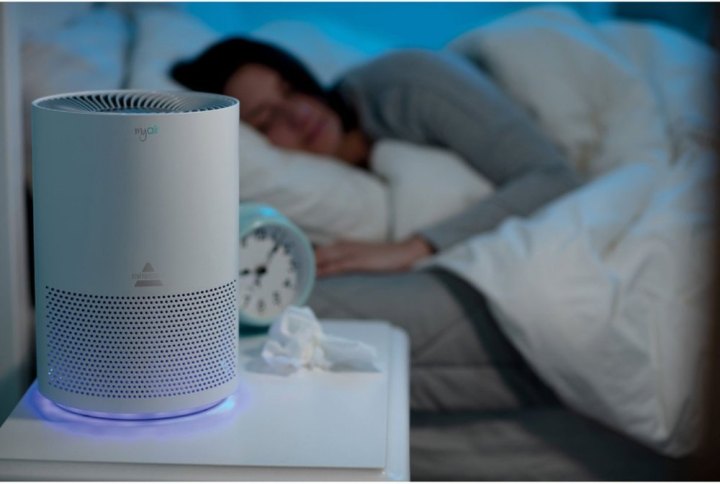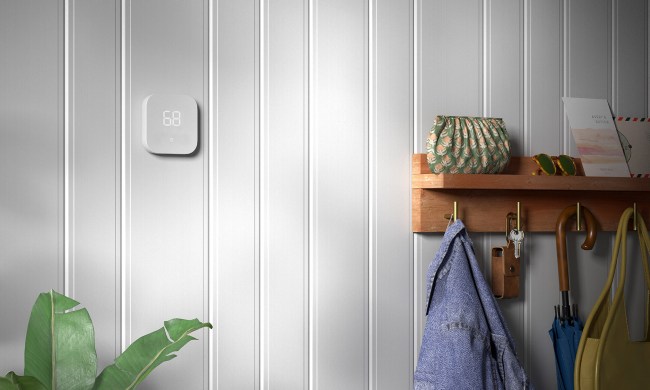If you’re looking to keep your home free of pollen, dander, and other airborne particulates, you’ll want to invest in a smart air purifier this spring. These devices make it easy to combat seasonal allergies and ensure you’re breathing healthy air throughout the entire year.
- When should you use an air purifier?
- How long should you run an air purifier a day?
- How much power does an air purifier use?
- Should I sleep with my air purifier on?
- How long does it take for an air purifier to clean a room?
- Do air purifiers cool the air?
- Does an air purifier dry the air?
- Do air purifiers create ozone?
- Do air purifiers stop viruses?
- Do air purifiers remove smells?
To help you make the most out of your air purifier, here are some tips and tricks to extend the life of your device and eliminate as many pollutants as possible. Of course, your results will vary widely by product. And if you need some help finding the right one for your home, be sure to check out our list of the best air purifiers of 2023.
When should you use an air purifier?

You can safely run an air purifier at any time of day or night. The only real concern with running an air purifier at night is the noise. If you’re finding your air purifier to be especially loud, check the filter, as it may be due for a change. The additional white noise may actually help lull you to sleep. Many air purifiers also offer settings meant to reduce noise so you can run them overnight.
How long should you run an air purifier a day?
Air purifiers can and should be run all the time. Particles don’t take breaks. Outdoor pollutants will continually seep into your home, even with rigorous sealing, so having an air purifier on to filter them out on an ongoing basis is beneficial. There’s nothing stopping you from turning it off to save money, but ideally, you’ll be running your air purifiers throughout most of the day.
How much power does an air purifier use?
Speaking of money, you’ll be glad to know air purifiers use up minimal power, especially if you get one with Energy Star certification. The final added costs will depend on which particular air purifier you’re using and the cost of electricity in your area. You can expect to use around 375 kilowatt-hours per year if you’re running it all day, every day. With average electrical rates in America around $0.10/kWh, you’re looking at ballpark costs of $37 per year.
Should I sleep with my air purifier on?
Allergens can interrupt sleep with coughing and sneezing, so an air purifier can potentially make a difference. An air purifier can be particularly effective during spring when pollen can be especially harsh on asthma sufferers. Clinical studies have shown that air purification can help asthmatics in particular while sleeping.
How long does it take for an air purifier to clean a room?
It can take between 30 minutes to 4 hours to purify the air in a room, depending on its size and the air purifier you’re using. Allergens and dust will likely flow back into the room whenever the purifier is off, so it’s necessary to keep it running if you want to keep the local air as clean as possible. Air purifiers often come with room-size ratings, and you can optimize their performance by sticking to those guidelines and not placing them in a room that’s too big for them to handle.
Do air purifiers cool the air?
Air purifiers pull in air to push through their filters, but ultimately don’t create cooling or heating effects in the room. You’ll still need a good old-fashioned fan or air conditioner unit for full climate control. The Dyson fan proves to be the exception to the rule, and you may be able to find other hybrid devices that include heating or cooling options in addition to air filtration.
Does an air purifier dry the air?
An air purifier does not make the air around it dry. That would require a condensation coil like you would see in most dehumidifiers. Similarly, air purifiers don’t humidify the air either. However, it is possible to buy models that include a humidifier. Bundling these functions can save you from having to manage a second air quality appliance.
Do air purifiers create ozone?
Some models purify the air using a mechanism called ionization. This electrifies the air running through the purifier to pull out particles. In the process, this indirectly binds oxygen molecules together to form an ozone. Even in low amounts, ozone is unhealthy to have in the home. Ozone can cause inflammation in the respiratory system, so be sure to avoid these models. Check any given purifier’s feature list to see if it mentions ozone, ionization, or activated oxygen.
Do air purifiers stop viruses?
Using an air purifier in conjunction with other means can help prevent airborne viruses from spreading within enclosed spaces. It’s worth reiterating that it’s not a foolproof deterrent in and of itself, and that air purifiers should be used with other best practices.
Do air purifiers remove smells?
In addition to pet hair, dander, mold spores, and dust mites, air purifiers also clean odors from the air. In particular, you’ll want to make sure you’re using an activated carbon filter. The standard HEPA filters can help, but smells typically originate with organic compounds, and activated carbon filters are better suited to capturing them.
Hopefully, we’ve been able to help answer some of your questions about how to use an air purifier. Getting the most out of one takes a little bit of adjusting, but at the end of the day, you and your family will be breathing better. See our list of the best air purifiers to find one that will work for your home.



